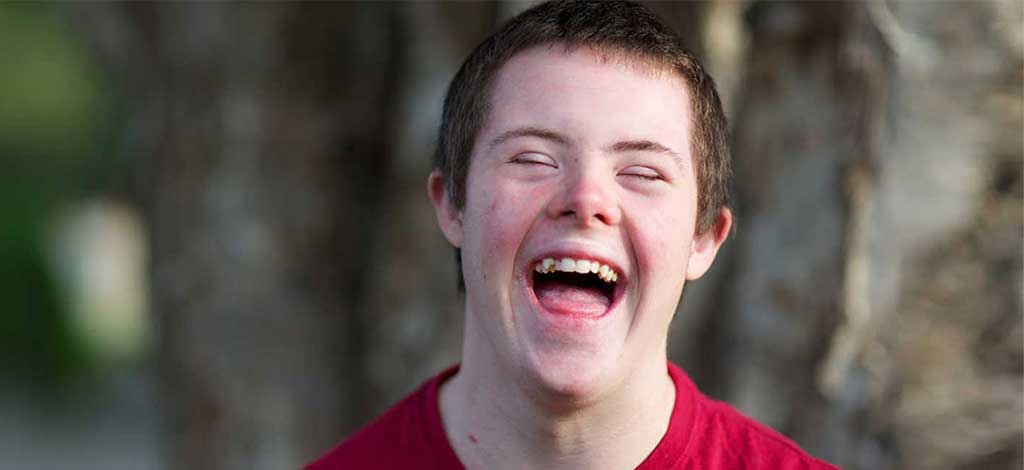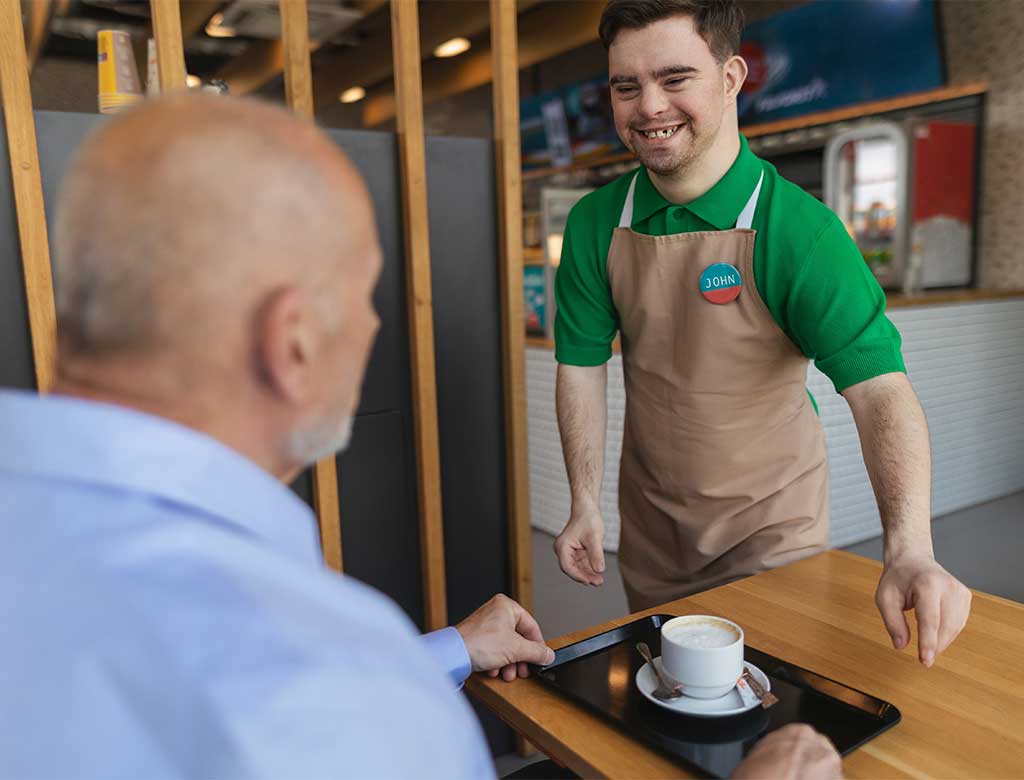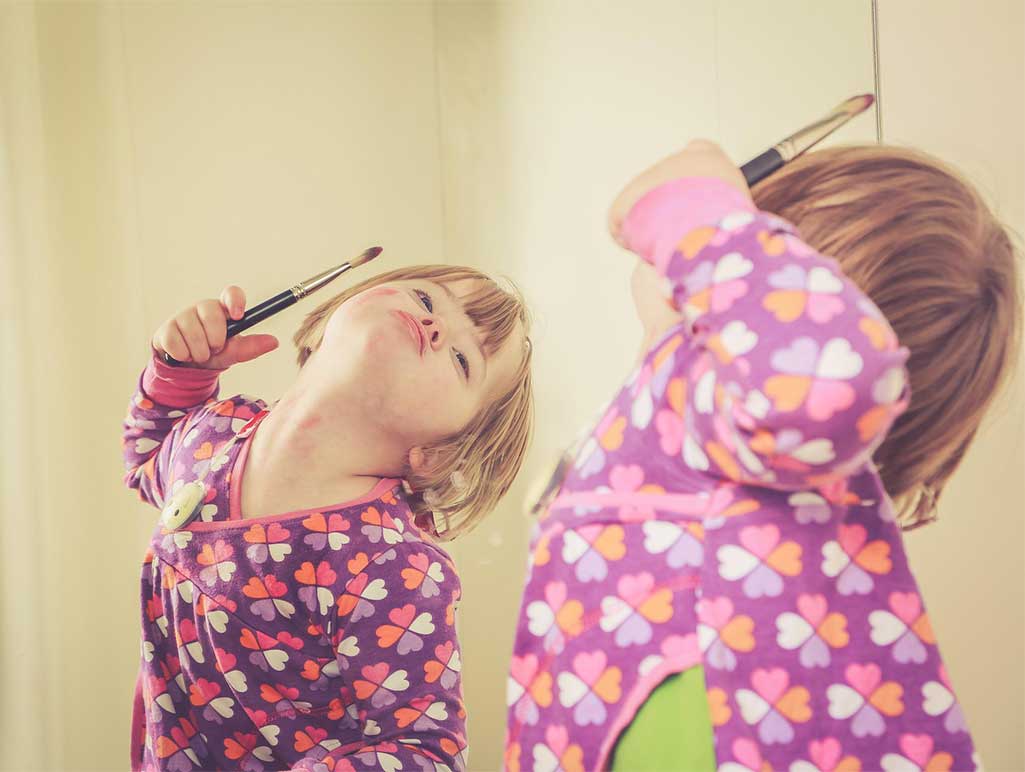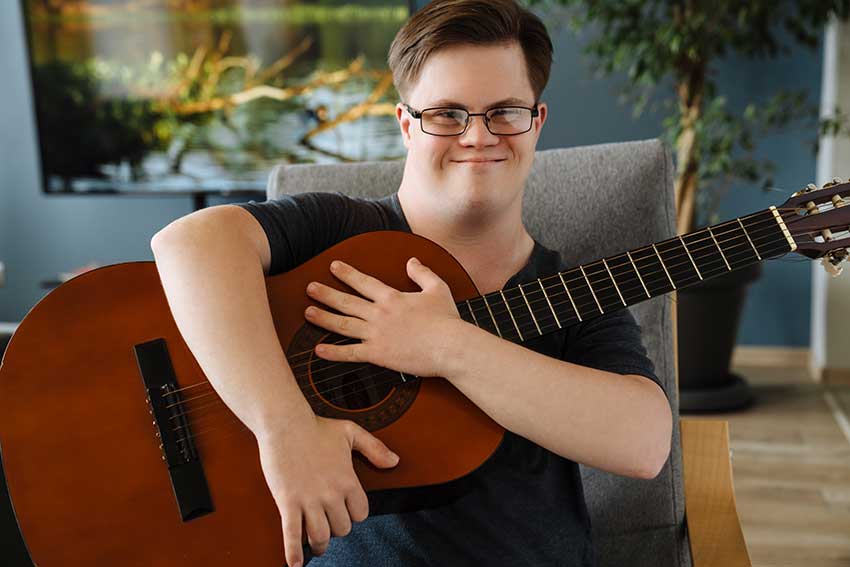EDUCATING OTHERS
As ambassadors for the Down syndrome community, one of our most important responsibilities is to educate others. The more we encourage others to understand the nuances associated with Down syndrome, the closer we move to a world of acceptance, inclusion, and harmony. The more advocates we have, the more the support, services, and resources are available to the Down syndrome community that we serve.
Proper Use in Text
People First Language is Important
- Put people first, not their disability
- A “person with a disability”, not a “disabled person”
- A “child with Down syndrome”, not a “Down’s child”
- Use emotionally neutral expressions
- A person “with” cerebral palsy, not “afflicted with” cerebral palsy
- An individual who had a stroke, not a stroke victim
- A person “has” Down syndrome, not “suffers from” Down syndrome
- Emphasize abilities, not limitations
- A person “uses a wheelchair”, not “wheelchair-bound”
- A child “receives special education services”, not “is in special ed”
- Adopt preferred language
- A “cognitive delay” or “intellectual disability” is much preferred over “mentally challenged”
- “Typically developing” or “typically abled” is preferred over “normal”
- “Accessible” parking space or hotel room is preferred over “handicapped”
- Refrain from the “R-Word”
- Use of the word “retarded” in any derogatory context is hurtful to many and suggests that people with disabilities are not competent.
The Condition Doesn’t Define the Person
While individuals with Down syndrome do possess some atypical features and characteristics from birth, they’re all uniquely talented and capable.
Although they will experience learning and developmental delays and are at risk of certain health problems, most children born with Down syndrome will live a normal, meaningful life and can grow up to be independent adults.


People With Down syndrome Are Fulfilled
In 2011, Brian Skotko, a Harvard-trained physician and researcher, published a groundbreaking survey, “Self-Perceptions from People With Down Syndrome.” His work revealed that people with Down syndrome have a very high level of satisfaction in their lives and are generally very happy people. Similarly, family members of people with Down syndrome also rank high in levels of personal fulfillment.
So not only are people with Down syndrome happy, but they also bring a great deal of happiness to their friends and family members. The survey found that 88 percent of siblings of children with Down syndrome feel that they are better people for having had their brothers and sisters; and other studies have found that children with Down syndrome have strong adaptive skills and that their parents tend to divorce less than the parents of children without Down syndrome.
Celebrate Individuality
No one is created equal, and thus each person with Down syndrome is uniquely made and uniquely gifted. Just like anyone, people with Down syndrome will have different likes and dislikes, and possess different strengths and weaknesses. They’ll gravitate toward (and often excel in) subjects, activities, hobbies and tasks that are of particular interest to them. Just like you, people with Down syndrome are not always happy, and will convey various emotions and can feel angry, sad, embarrassed or excited.
What makes us tick is what makes us special, and what makes us individuals. It is important to understand the dynamics of each person with Down syndrome and to recognize, celebrate, and support their unique talents and interests. They are capable of great things.


Don’t Underestimate Potential
People with Down syndrome are very determined and capable. When they put their minds to things, there are few limits on what they can achieve. The majority of adults with Down syndrome in the US have jobs or provide volunteer services. Several are accomplished athletes, artists, business owners, spokespeople, students, actors, musicians, etc. It is important that society focuses on and celebrates the abilities of others, not the disabilities of others.
Celebrities with Down syndrome:
Interested in joining the Manasota BUDS family?
Membership is FREE, so join today and help us in bringing up Down syndrome!


